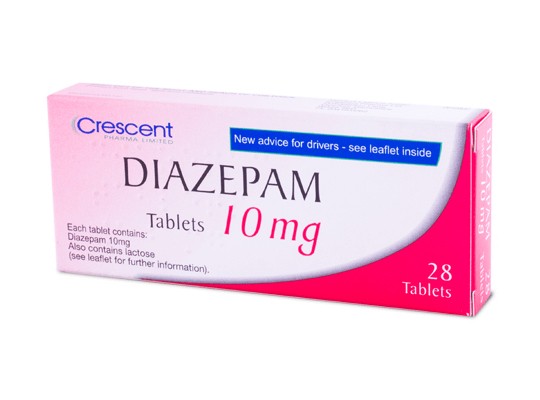On another hand, practitioners of Empirical, or option medication, do their homework: they study the person people; establish most of the adding causes; observe all the observable symptoms; and view the outcomes of treatment Diazepam Cresent 10mg UK.
Homeopathy and Chinese medication are excellent samples of that approach. Equally modalities might be included with since physicians in these fields and other option techniques constantly seek new information based on their clinical experience.
Here is the meaning of empirical: it’s centered on experience, then continuously tried and sophisticated – although not reinvented or discarded – through the doctor’s day-to-day exercise with actual patients. For this reason, natural therapies don’t become outmoded; acupuncture therapy strategies don’t become irrelevant.
Alternative medication is proven each and every day in the clinical experience of physicians and patients. It absolutely was proven a decade ago and will stay proven a decade from now. According to Dr. Coulter, option medication is more scientific in the truest feeling than European, so-called scientific medicine.
However, what we see far too frequently in main-stream medication is a drug or method “proven” as powerful and acknowledged by the FDA and other respected figures simply to be revoked a few years later when it’s been which can be poisonous, malfunctioning, or deadly.
The conceit of main-stream medication and its “science” is that elements and procedures should move the double-blind study to be proven effective. But could be the double-blind technique probably the most proper way to be scientific about option medication? It’s not.
It’s time for main-stream medical professionals to prove the research behind their medication by demonstrating effective, nontoxic, and inexpensive patient outcomes. It’s time to revisit the scientific technique to cope with the difficulties of option treatments.
The U.S. government has belatedly established a fact that countless Americans have identified professionally for many years – acupuncture works. A 12-member screen of “experts” informed the National Institutes of Wellness (NIH), its mentor, that acupuncture is “clearly effective” for treating specific situations, such as fibromyalgia, golf knee, pain subsequent dental surgery, nausea throughout pregnancy, and nausea and sickness related to chemotherapy.
The screen was less persuaded that acupuncture is acceptable as the only real therapy for problems, asthma, habit, monthly pains, and others. The NIH screen said that, “you will find a number of cases” where acupuncture works. Because the therapy has less unwanted effects and is less intrusive than main-stream treatments, “it is time to take it seriously” and “grow its use into main-stream medicine.”
But main the NIH’s recommendation and qualified “legitimization” of acupuncture is a greater concern that should come to light- the presupposition so ingrained inside our culture as to be almost invisible to all but probably the most worrying eyes. The presupposition is these “experts” of medication are called and qualified to move judgment on the scientific and therapeutic merits of option medication modalities.
The situation knobs on the definition and scope of the term “scientific.” The news is saturated in problems by expected medical professionals that option medication isn’t “scientific” and maybe not “proven.” Yet we never hear these professionals take a moment out from their vituperations to study the tenets and assumptions of these cherished scientific solution to see if they are valid.
Medical historian Harris L. Coulter, Ph.D., composer of the landmark four-volume record of European medication called Divided Heritage, first informed me to a crucial, nevertheless unrecognized, distinction. The issue we ought to ask is whether main-stream medication is scientific. Dr. Coulter argues convincingly that it’s not.
Over the last 2,500 years, European medication has been split by way of a effective schism between two opposed methods for considering physiology, wellness, and healing, claims Dr. Coulter. What we now call main-stream medication (or allopathy) was when known as Rationalist medication; option medication, in Dr. Coulter’s record, was called Empirical medicine. Rationalist medication is founded on purpose and prevailing idea, while Empirical medication is founded on seen facts and actual life experience – about what works.
Dr. Coulter makes some startling findings based on this distinction. Main-stream medication is strange, equally in nature and design, to the scientific method of investigation, he says. Its concepts continuously change with the most recent breakthrough. Yesterday, it was germ idea; nowadays, it’s genetics; tomorrow, who understands?
